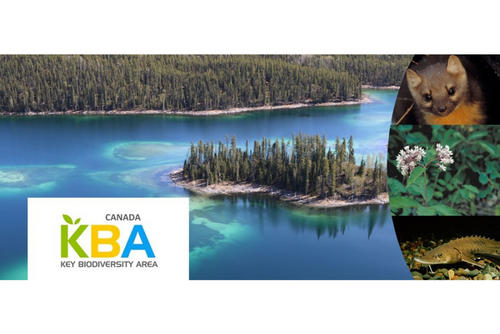
Welcome back after a long, hot summer!
There is a lot going on in the world right now, including with global conservation initiatives. The IUCN World Conservation Congress is running from Sept 3-11 in Marseilles, although most of it has turned virtual. There are a number of KBA events at the Congress, focused on how KBAs can be used by the business and finance communities, monitoring within KBAs, capacity-building for applying the KBA Standard, and the work that countries are engaged in to identify KBAs. Canada was represented in a session on September 6th, where Chloé Débyser updated the international community on our collaborative approach to identifying KBAs, and shared a map of the hundreds of KBAs that have been delineated to date. The sessions are closed to attendees, but as we have some nice new maps that we prepared for this event, we will share them with you at an upcoming webinar.
Global negotiations around post-2020 biodiversity targets also involve the KBA community. KBAs are both an information layer to feed into protected area/OECM planning and an indicator of how well the current network of protected areas and OECMs capture areas of importance for biodiversity. With Canada’s new target of 30% by 2030, the availability of KBA spatial information can provide much needed guidance on critical areas for species and ecosystems; and federal, provincial and territorial governments in Canada have embraced KBAs for this purpose. Please see here for a breakdown of what should count towards 30%, according to some global experts – including KBA Canada’s Stephen Woodley. We are in a hurry to complete as large a set of KBAs as possible across all Canadian jurisdictions in order to feed into upcoming land use and protected area planning, which includes planning around Indigenous Protected and Conserved Areas. Get in touch if you would like to know the status of KBA work in your Province/Territory/region.
On June 9th, we held a webinar on the progress of the KBA Canada program to date, and discussed the future of the program. Over 90 individuals joined to hear government and NGO perspectives on the value of KBAs. Two years in, enthusiasm for the KBA Program has never been higher, and there is an increasing appetite to work together to ensure that KBAs are effective tools to conserve species and ecosystems in Canada. A number of ideas about increasing the uptake and use of KBAs across sectors emerged from this meeting and from a subsequent meeting of the KBA Coalition. From building awareness of KBAs and the remarkable biodiversity they contain, to incorporating KBAs into NGO and government programs and planning, the effectiveness of KBAs as a tool will depend on their promotion and use by all partners. We’d like to hear from you about how you are using, or planning to use, KBA information and data in your work so that we can support these activities.
The recordings for all past webinars can be found on our website.
As always, please get in touch if you have questions or if you want to learn more.
Ciara Raudsepp-Hearne
Canada Key Biodiversity Areas Coordinator / Coordonnatrice Zones Clés pour la Biodiversité